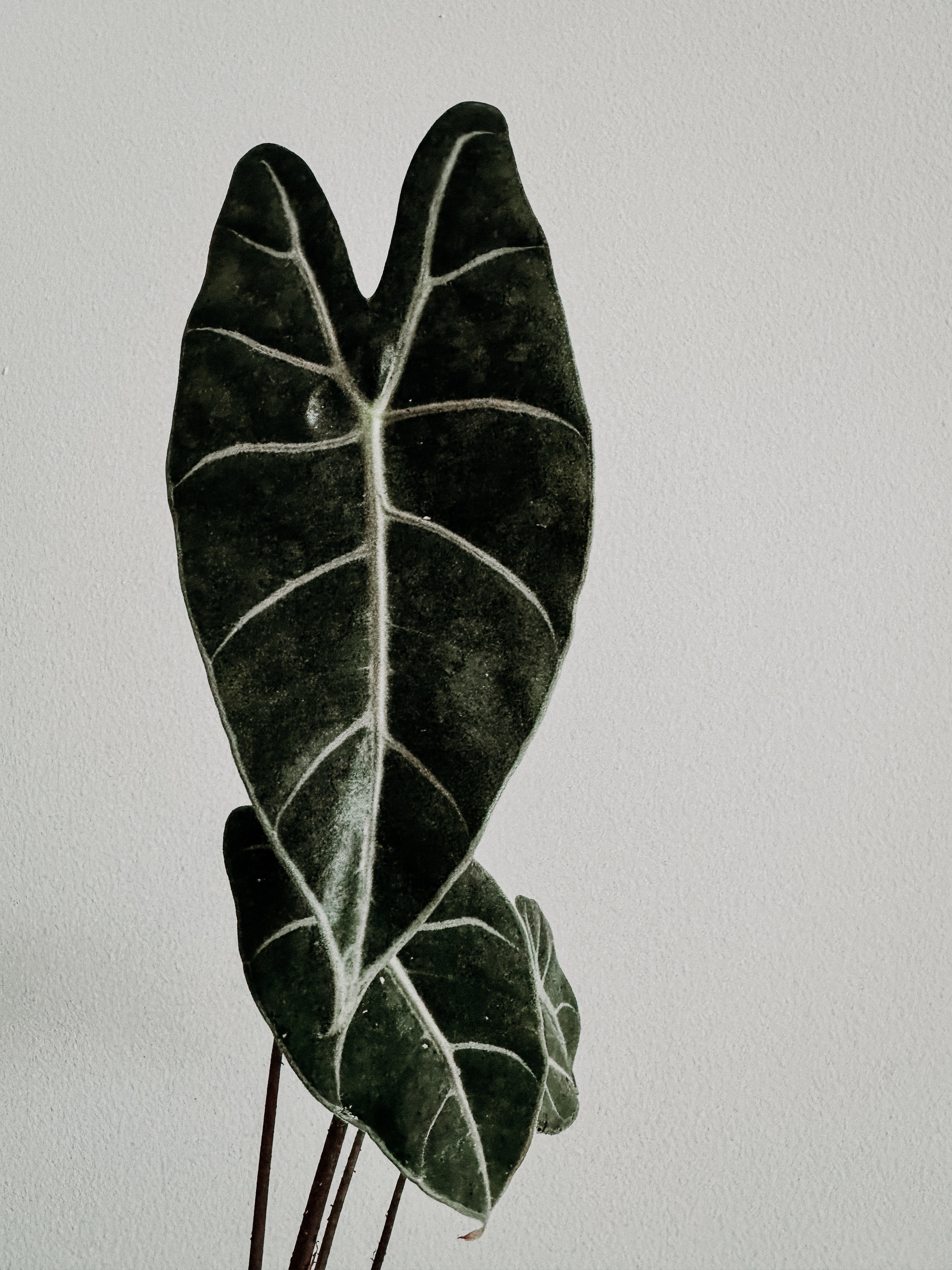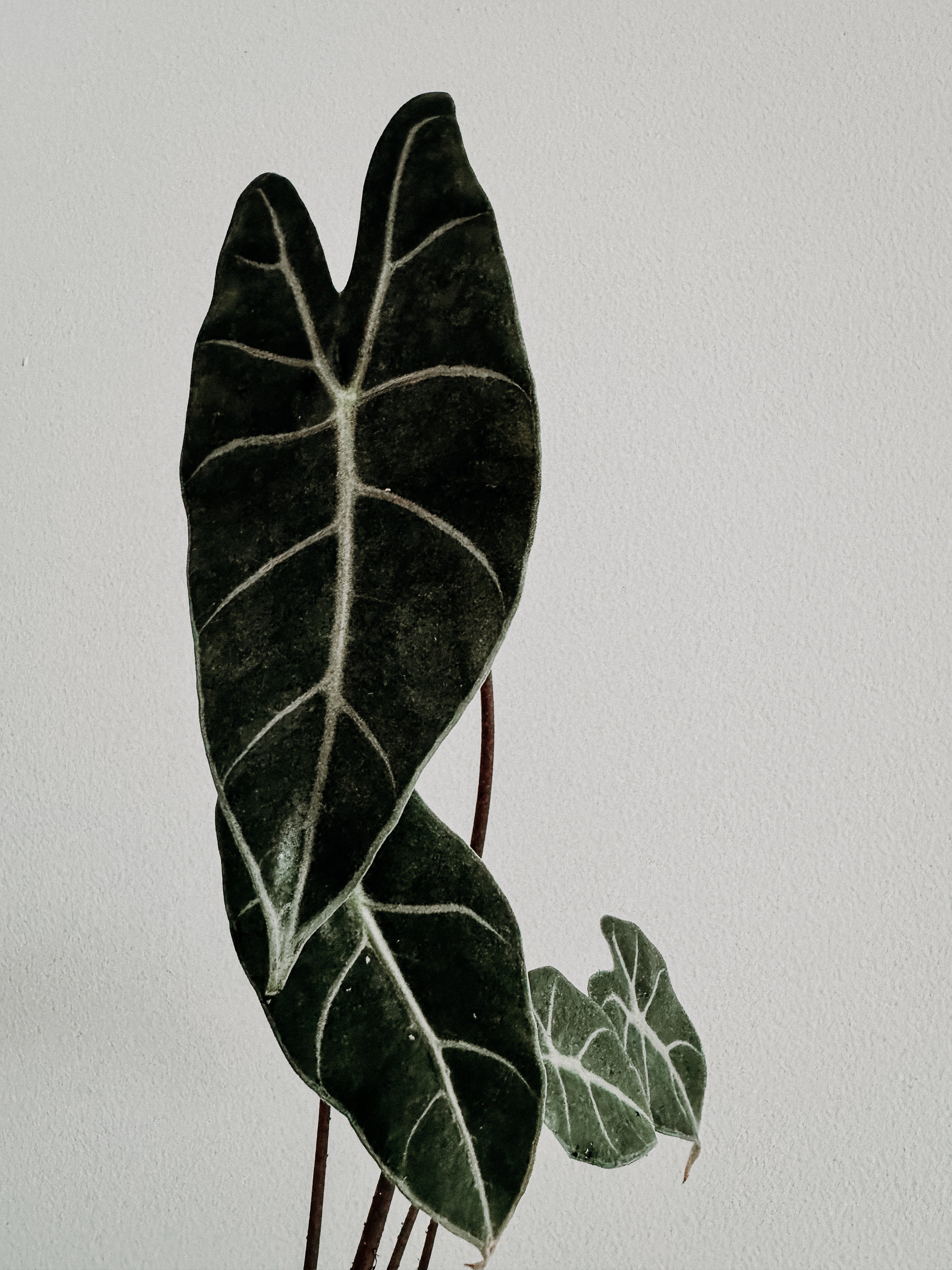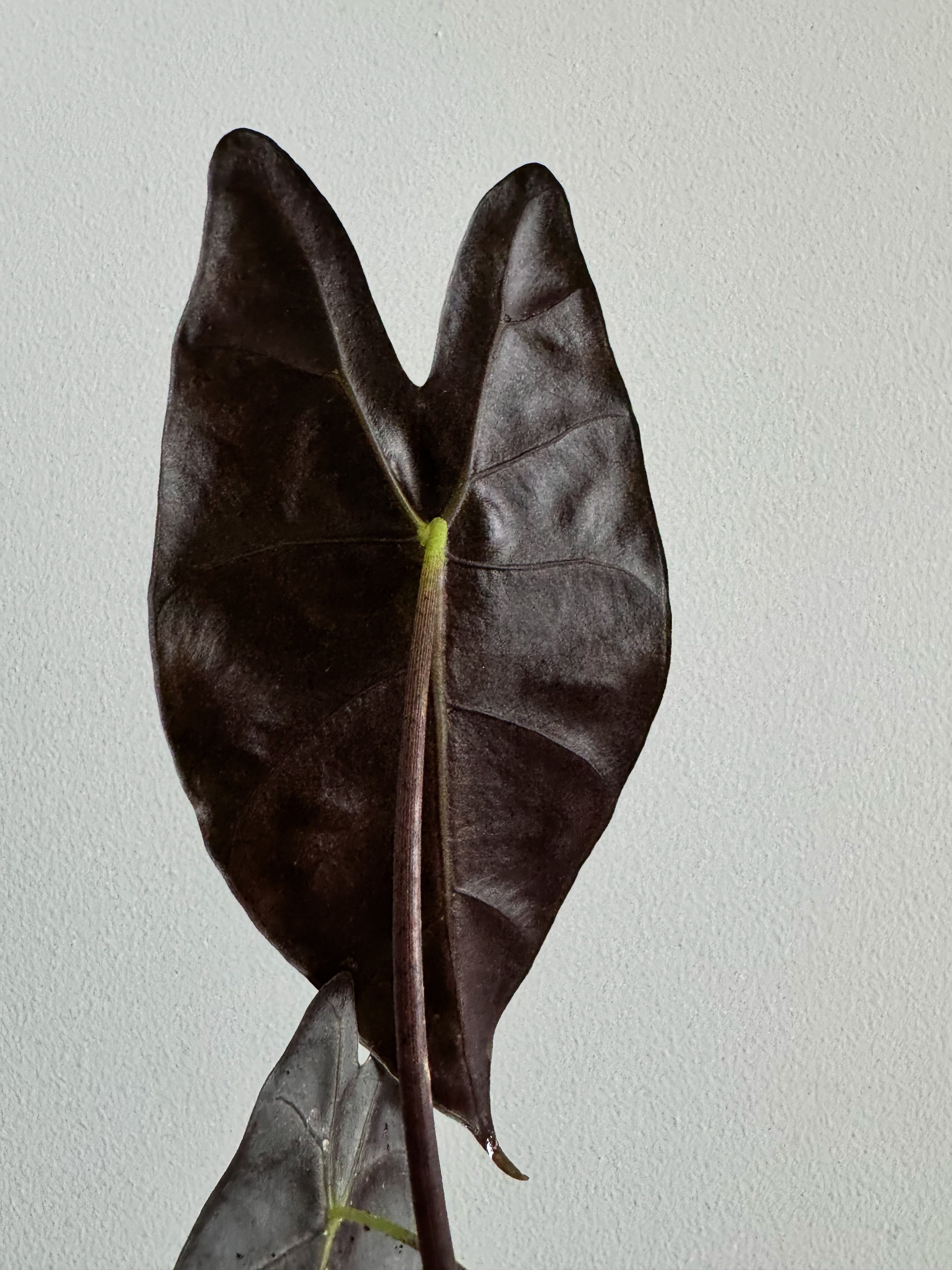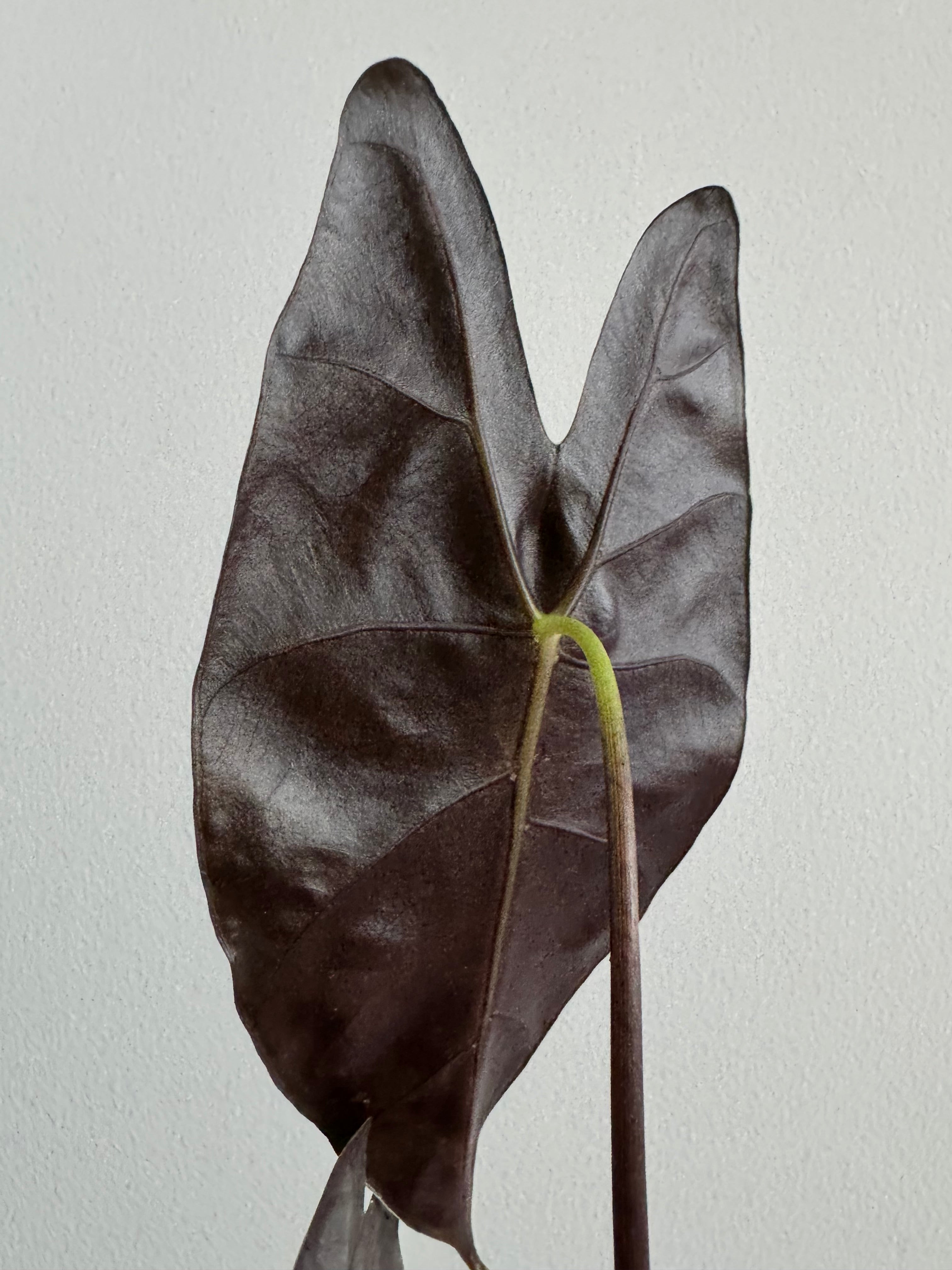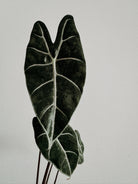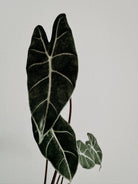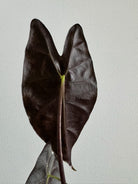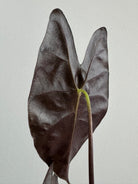Alocasia Suhirmaniana Purple
Couldn't load pickup availability
🌿 Alocasia suhirmaniana ‘Purple’ Care Guide
🪴 Light
Provide bright, indirect light.
This Alocasia species loves strong filtered sunlight, similar to its natural tropical understory habitat.
-
Too little light will cause slow growth and dull leaf color.
-
Too much direct sunlight can scorch or fade the deep purple tones on the leaves.
An east-facing window or bright spot with sheer curtains works best.
🌡️ Temperature
Keep the plant in warm, stable conditions between 20°C–30°C (68°F–86°F).
Avoid cold drafts, air conditioners, or temperatures below 16°C (60°F).
Alocasias dislike sudden fluctuations—consistency is key to avoid leaf drop or dormancy.
💧 Watering
Water when the top 2–3 cm (about 1 inch) of soil feels dry.
-
Water thoroughly until it drains out the bottom of the pot.
-
Never let the plant sit in standing water.
-
During the active growing season (spring–summer), keep the soil evenly moist but not soggy.
-
In cooler months, reduce watering as growth slows.
💡 Tip: It’s better to slightly underwater than to overwater—Alocasias are prone to root rot.
🌫️ Humidity
Alocasia suhirmaniana thrives in high humidity, ideally 65–85%.
-
Use a humidifier for consistent moisture.
-
Place the pot on a pebble tray with water or group plants together.
-
Mist lightly, but avoid wetting the leaves excessively to prevent fungal spots.
Dry air can cause browning tips or crisp edges on leaves.
🌱 Soil
Use a light, airy, and well-draining mix designed for aroids.
Recommended mix:
-
40% coco coir or peat moss
-
30% orchid bark
-
20% perlite or pumice
-
10% charcoal or sphagnum moss
This mix provides excellent airflow while retaining some moisture for the roots.
🌾 Fertilizer
Feed every 2–4 weeks during spring and summer with a balanced liquid fertilizer at half strength.
Stop fertilizing in autumn and winter when the plant slows down.
You can alternate between a general houseplant fertilizer and a calcium-magnesium supplement to support strong leaves.
🪴 Repotting
Repot every 1–2 years, or when roots start circling the bottom of the pot.
Choose a pot that’s 2–3 cm (1 inch) larger than the previous one, with good drainage holes.
Best time: spring or early summer.
Be gentle—Alocasia roots are sensitive.
🌘 Dormancy
In colder or darker months, the plant may enter partial dormancy—losing leaves or halting growth.
Don’t panic.
-
Reduce watering but don’t let the soil dry out completely.
-
Keep it warm and humid.
New growth will resume as light and temperature increase.
💜 Foliage Notes
-
The ‘Purple’ form of Alocasia suhirmaniana has deep green to purplish leaves with metallic or iridescent undersides.
-
The stems are often dark or reddish-purple, adding to its exotic look.
-
Leaves can reach 30–40 cm (12–16 in) with proper care.
Provide stable humidity and light for best color and leaf texture.
🐾 Toxicity
Like other Alocasias, this plant is toxic if ingested due to calcium oxalate crystals.
Keep out of reach of pets and small children.
Size: 15cm

